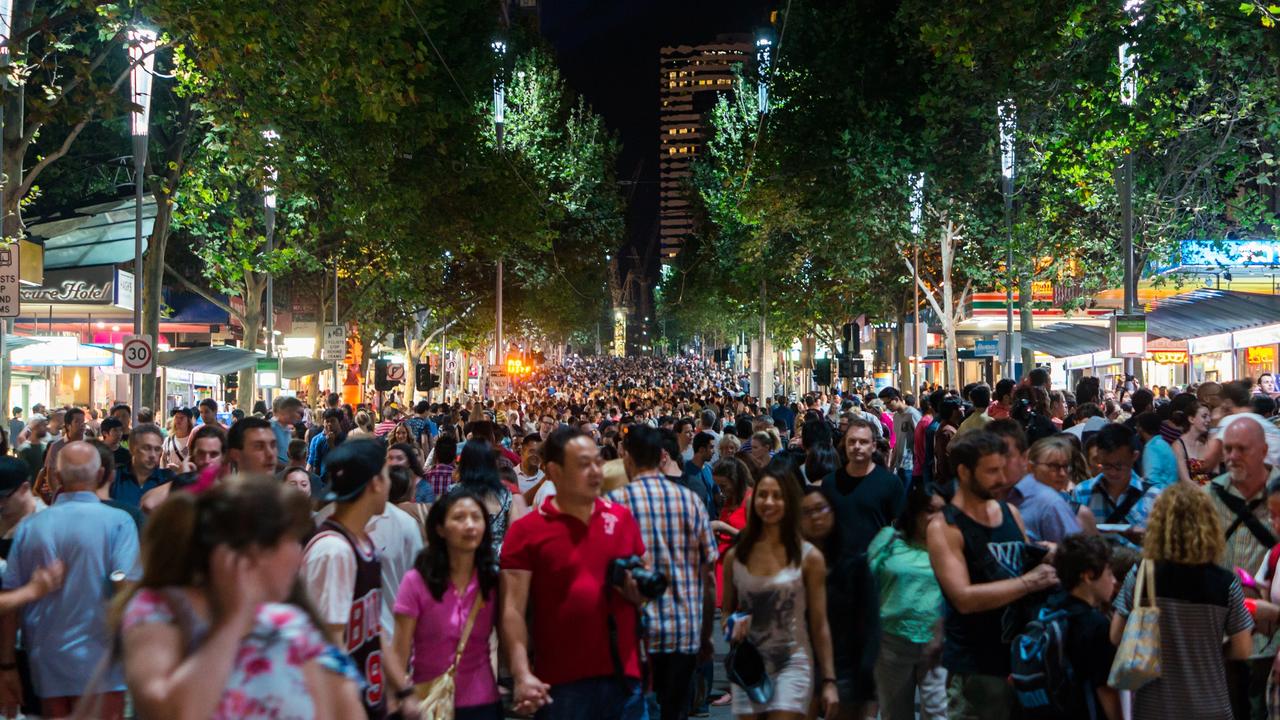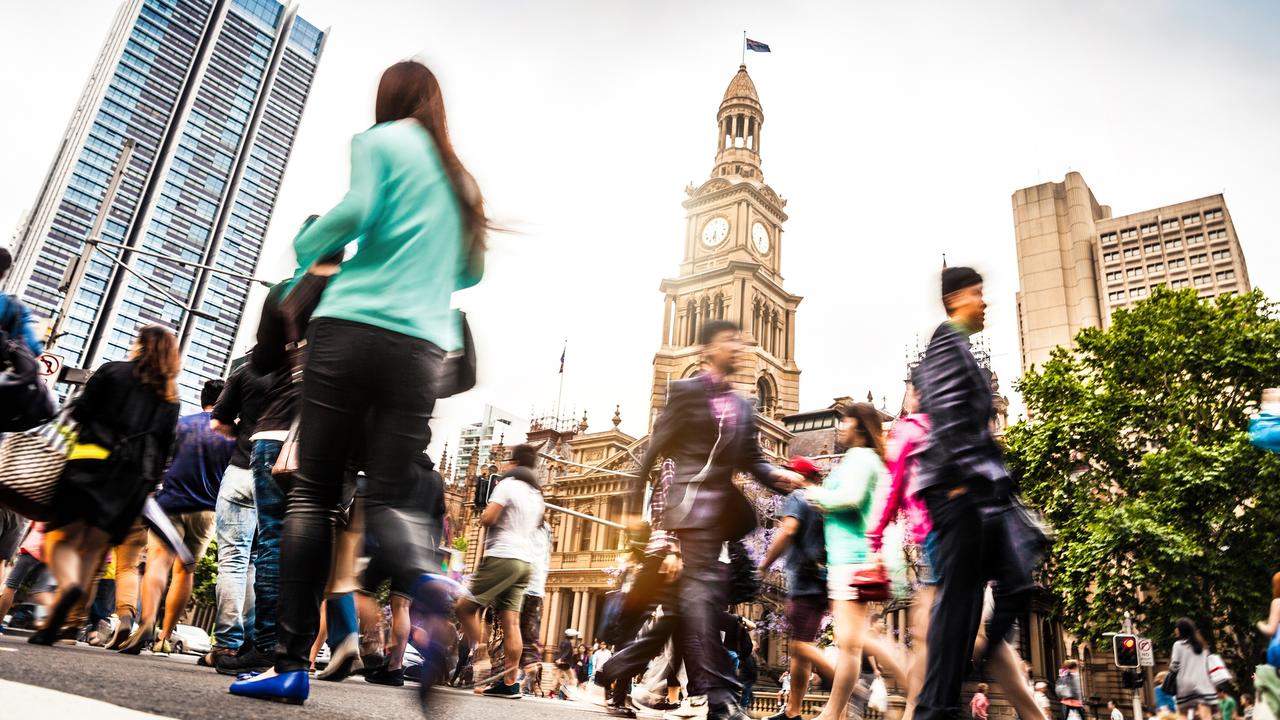Population pumped up and creating winners and losers
A million more people in two years has meant a lot of extra mouths to feed and roofs to build, and there are financial winners and losers.
Remember those old sayings about some things being as boring as watching paint dry or grass grow?
Well, I’ve found a new type of slow, monotonous watching, and it’s surprisingly addictive.
Watching populations grow!
As new figures show Australia’s population grew 2.5 per cent last year to 27 million, with overseas migration booming, it’s worth examining what it means for our money.
Here’s where my new habit comes in: watching our population grow in real time on the Australian Bureau of Statistics online population clock.
You can see our population – now nearing 27.3 million – ticking higher by one human every 47 seconds, based on ABS number crunching of births, deaths and immigration.
And, get this, there also is a global population clock! It rises by 2.5 people every second and is now above 8.1 billion. It puts Australia’s relative emptiness into perspective, with seven countries having more than 200 million people and another eight having 100-200 million.

Only three countries on the planet – Greenland, Mongolia and Namibia – have population densities below Australia’s 3.35 people per square kilometre.
However, the rapid growth since the pandemic is having an impact on our finances, living costs, lifestyles and investments – some bad and some good.
More people means more money being spent, which is generally good for businesses and employment because more stuff gets sold.
More people also means more demand for things, especially housing, which is bad for first home buyers who are battling to get a foot in the door of property ownership.
Some critics are quick to blame cashed-up migrants for the housing crisis, after net overseas migration jumped by a record 547,200 people in 2023, after record 433,100 people in 2022.
But we shouldn’t blame people simply seeking a better life. The rent and property problems are because governments at all levels haven’t done enough to boost housing supply.
Those one million people flowing into Australia in just two years need a lot of housing, as well as all the other goods and services of daily life.
The imbalance between migration and demand for housing and other items also keeps inflation higher, making it harder for the Reserve Bank to cut interest rates. Add to this wall-to-wall federal and state governments in mainland Australia throwing cash at people to help with living costs, and higher inflation and rates could stick around.
That inflation is good for people with bank deposits because they continue getting nice returns on their savings.
It’s also good for property investors as house prices and rents keep rising, and even for share investors because inflation pushes up business’s prices, profits, dividends and valuations faster than in a zero-inflation world.

Sadly, though, it’s a case of rich investors getting richer and poor battlers getting poorer.
Australia also has a case of the old getting older, which has its own financial impact.
More people will need pensions for longer, although superannuation is playing a starring role in helping millions of people lead comfortable retirements that generations before them never had.
The latest ABS data showed the nation’s fastest-growing age group is people between 75 and 79, up 6.7 per cent last year.
The Retirement Living Council says the rapid rise of over-75s over the next two decades will impact housing, hospitals, workforces and the economies.
Seniors rely on migration more than you think. I’ve spent time in nursing homes and hospitals recently, and without our wonderful migrant workers – or the adult children of those immigrants – many seniors in aged care would be stuffed because of staffing issues.
Governments need to sort out migration, housing and money matters. Fast.
Originally published as Population pumped up and creating winners and losers



